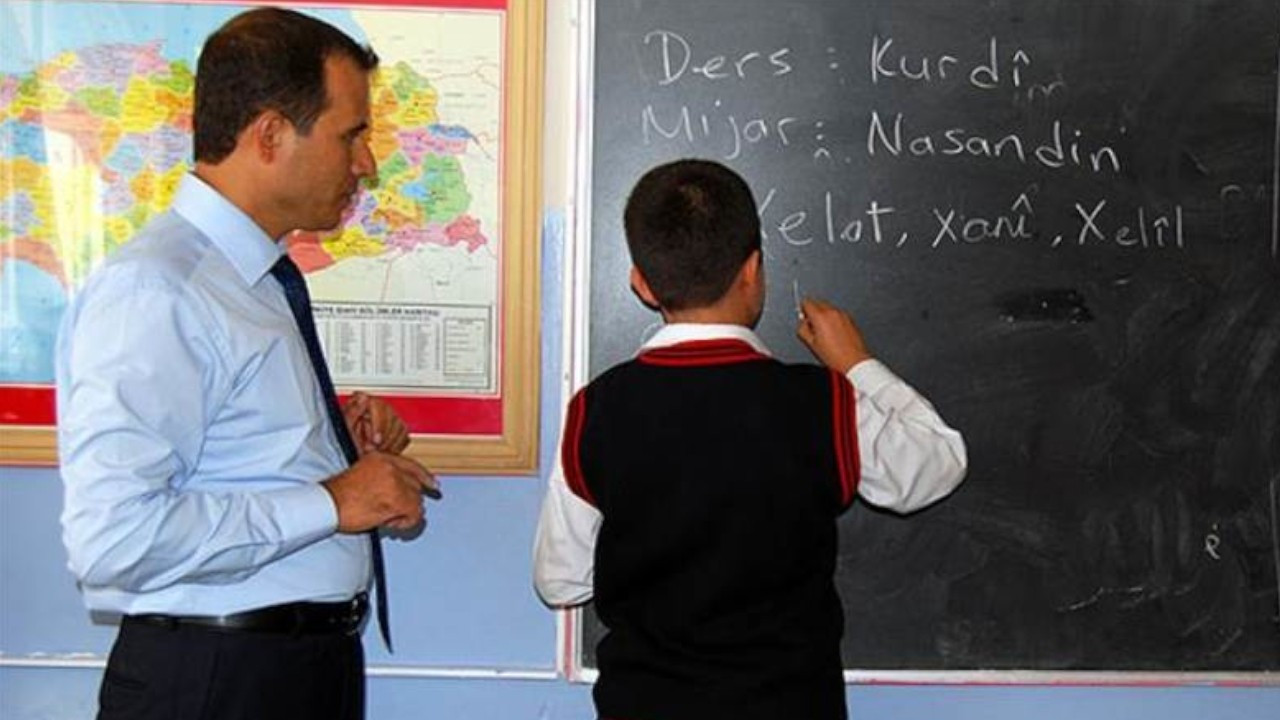HDP MP demands inquiry into decreasing number of minority-language elective courses
HDP MP Murat Sarısaç has said that the number of students taking elective Kurdish-language courses had decreased by 56,000 within the past five years. The MP requested a parliamentary inquiry regarding the teaching of minority languages including Kurdish, Laz and Circassian.
Serkan Alan / DUVAR
Murat Sarısaç, a Peoples’ Democratic Party (HDP) lawmaker for the eastern province of Van, demanded a parliamentary inquiry regarding the teaching of elective minority languages across the country including Kurdish, Laz and Circassian.
The teaching of minority languages has been legally authorized since a series of reforms were introduced by the ruling Justice and Development Party (AKP) in 2013. However, parents are faced with obstacles when selecting language courses, and the necessary teachers and materials aren't provided for the teaching of minority language classes, Sarısaç said in his parliamentary motion.
Sarısaç emphasized that education in one’s mother tongue positively contributes to the pedagogical development of children and helps them learn other languages more easily.
Sarısaç added that children who cannot speak their mother tongue could break away from the education process over time because of loss of confidence. “It is known that linguistic and cultural assimilation induces psychological issues,” he said.
“Despite explanations from government officials and undersecretaries at the Ministry of Education, elective language courses have been rendered dysfunctional as classes have not been opened in time and teachers have not been appointed,” Sarısaç warned.
He also said that the fact that some school administrators interfered with the teaching of such language courses, that parents living in Turkey’s western provinces were reluctant to choose the courses for their children and the overall political atmosphere had caused the 2013 language courses reform to be null.
For instance, while during the school year 2015-2016, 77,931 students had selected Kurdish (both the Kurmanji and Zazaki) classes, that number had fallen to 57, 656 students in 2016-2017 and 19,328 students in 2017-2018. In 2020, that number was 21,595.
Hence, the number of students taking elective Kurdish-language classes has decreased by 56,000 and the number of Kurdish-language textbooks being used has been reduced by 25,000 within the past five years.
What is more, according to Sarısaç, while 51,240 5th grade Kurdish-language textbooks were being used in 2013-2014, that number was 31, 674 in 2017-2018 and 26,361 in 2019-2020.
A report published by the Laz Culture Association regarding Laz-language elective courses also showed that while Laz was taught in 14 classes in 7 different schools with 274 students in 2014-2015, those figures had fallen to 15 people in 1 class in 1 school in 2018-2019.
In 2017-2018, no Laz language classes were opened and a mere 47 students chose the course in the 2020-2021 term, but they couldn’t even take the Laz language lesson as no classes were opened.
Research carried out by the Center for Socio-Political Field Studies in January 2022 with regards to minority-language courses also showed that 43.4 percent of respondents said that “No class was opened even though we requested it, and no apparent reason was provided.”
“It is paradoxical that classrooms are not opened in many places, although only 10 students are needed in cities where Kurdish (Kurmancca, Zazaki) is widely spoken,” Sarısaç said.

 Non-native Turkish-speakers reluctant to speak mother tongue in gov't institutionsHuman Rights
Non-native Turkish-speakers reluctant to speak mother tongue in gov't institutionsHuman Rights Ban on Kurdish alphabet leads to problems for people bearing Kurdish names in TurkeyCulture
Ban on Kurdish alphabet leads to problems for people bearing Kurdish names in TurkeyCulture